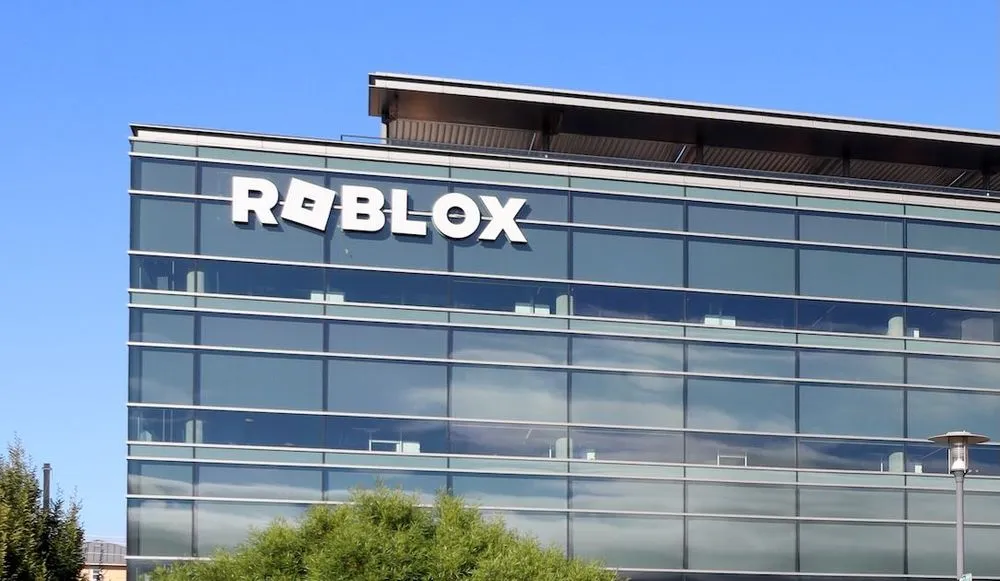Roblox introduces age estimation technology for unfiltered chats
Roblox on Thursday announced it will begin using facial age estimation technology to verify the ages of users 13 and older who want to chat without having their conversations subject to filtering.
Persona, the third-party vendor Roblox will use to perform the checks, will retain user data for 30 days and then delete it, the platform said. Roblox will not receive any “raw identification information,” according to an explainer on its website.
Both a video selfie and image of a government ID will be required for the age checks, Roblox said in the explainer. The gaming platform has tens of millions of daily users.
The age verification technology will allow teenage and adult users to access the new Roblox feature Trusted Connections, which lets players designate contacts with whom they can speak more freely in private and unfiltered chats.
Roblox has come under fire over safety concerns in the past and has been sued by multiple victims who say predators found them on the platform and sexually exploited them.
The move comes amid an intense national debate about age verification technology as lawmakers are increasingly demanding that the tool be used to protect children online even as civil libertarians are decrying it as invasive and unconstitutional.
On June 27, the U.S. Supreme Court ruled in favor of Texas Attorney General Ken Paxton, upholding a state law requiring age verification for internet users seeking to visit sites hosting a significant amount of adult content.
About two dozen states have enacted laws that require age verification for users seeking to access pornography, social media or other adult content online.
Roblox Chief Safety Officer Matt Kaufman said in a blog post that the age verification program is emblematic of the company’s focus on protecting users.
“We’ve spent nearly two decades building sophisticated safety systems, which supports our mission of connecting a billion people every day with optimism and civility,” Kaufman wrote.
“We’re empowering users 13 and older to connect and chat more freely with people they know and trust, fostering positive interactions.”
Child safety concerns
Recent user lawsuits against Roblox include one filed July 9 by a law firm representing a young girl who alleges that she was groomed by a predator she met on the platform. The predator later attempted to rape her, she says.
The case is just one example of a much bigger problem in which Roblox is “enabling the abuse of children within the digital spaces that [it] has built, marketed, and monetized,” according to a press release from the law firm representing the plaintiff.
“The case reflects a nationwide reckoning, as it follows a growing number of legal actions that highlight an alarming pattern of abuse stemming from online child-targeting behavior enabled by lax moderation and oversight,” the press release said.
In April, Florida Attorney General James Uthmeier subpoenaed Roblox, demanding information about how it markets itself to children and what it is doing to prevent predators from meeting them on the platform.
The subpoena included a request for information on age verification processes.
“There are numerous concerning reports about children being exposed to graphic or harmful material on the gaming platform, as well as predatory adults being able to message minors on the app freely,” a press release announcing the subpoena said.
On Monday, Reddit launched its own age verification program, requiring users in the United Kingdom to submit a selfie or government ID in order to access “certain mature content.” Reddit’s verification checks also will be administered by Persona.
They come in response to the U.K.’s Online Safety Act, which mandates that sites hosting content that is deemed harmful to children deploy “robust” age checks.
Suzanne Smalley
is a reporter covering digital privacy, surveillance technologies and cybersecurity policy for The Record. She was previously a cybersecurity reporter at CyberScoop. Earlier in her career Suzanne covered the Boston Police Department for the Boston Globe and two presidential campaign cycles for Newsweek. She lives in Washington with her husband and three children.



